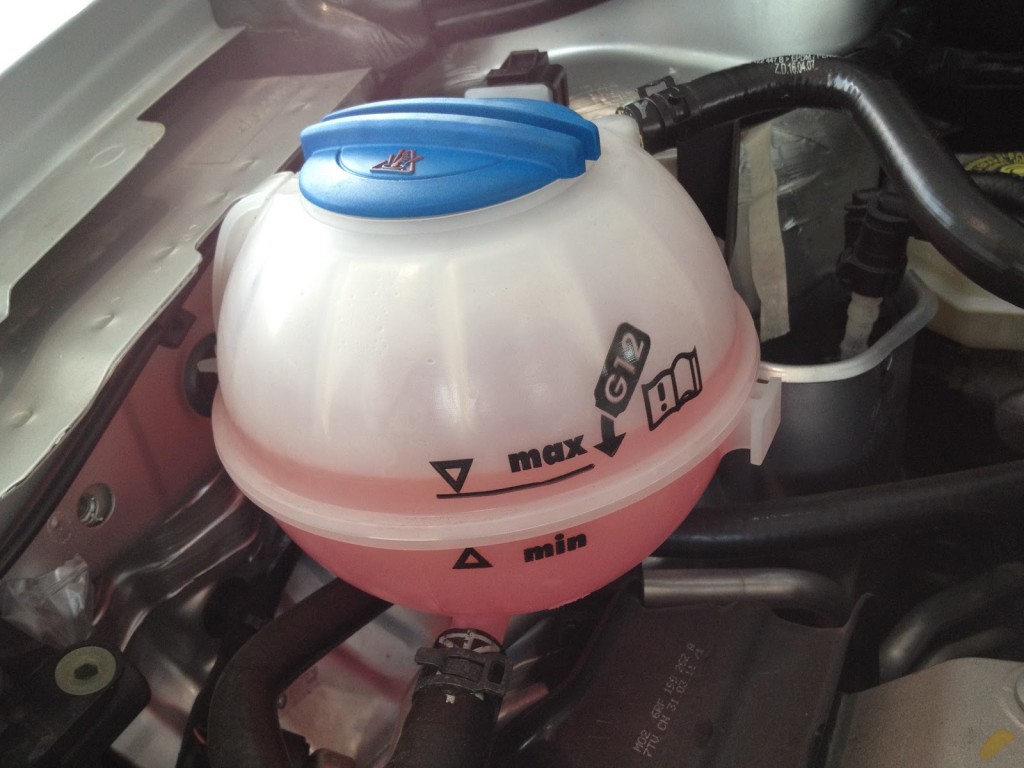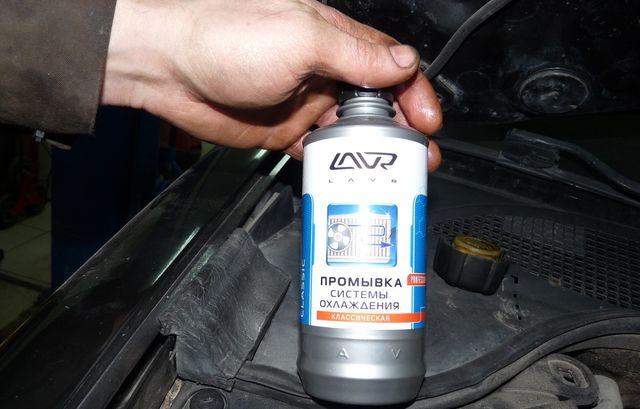
The better to flush the engine cooling system from oil, emulsion and rust
Content
The cleanliness of the cooling system is not cosmetic, it is the basis for the normal exchange of energy between the metal parts of the engine and the fluid. To transfer heat from the engine to the radiator, antifreeze is used - a water-based antifreeze liquid with the addition of ethylene glycol. It contains the substances necessary to maintain the walls of the cooling jacket in order, but they are produced and the antifreeze degrades, becoming itself a source of pollution.
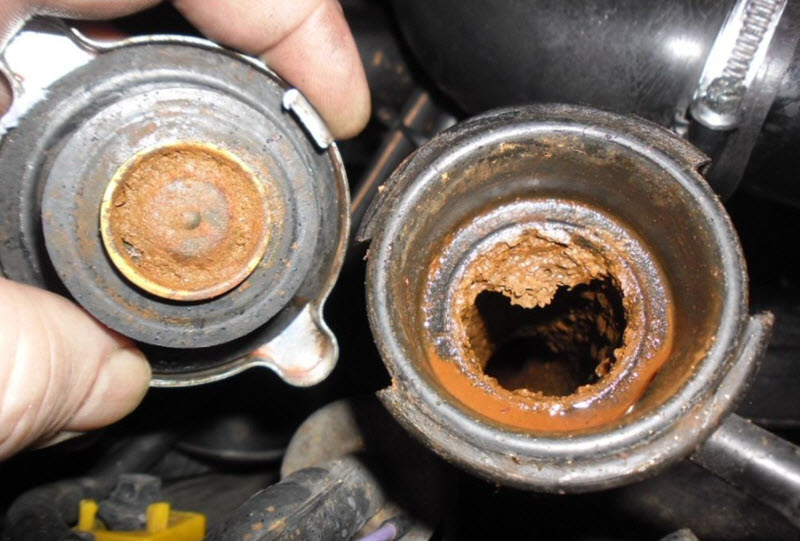
When is the engine cooling system flushed?
If you constantly use high-quality antifreeze, replace it in time and make sure that any foreign substances do not get into it, then the system does not need to be flushed.
Anti-corrosion, detergent, dispersant and normalizing additives are present in certified antifreeze. But there are situations when the rules of operation are violated, and flushing becomes a necessity.
Oil getting into antifreeze
In some places of the motor, the cooling and oil channels are adjacent, a violation of the seals leads to mixing of the oil with antifreeze. Especially often the joint of the head with the cylinder block is broken.
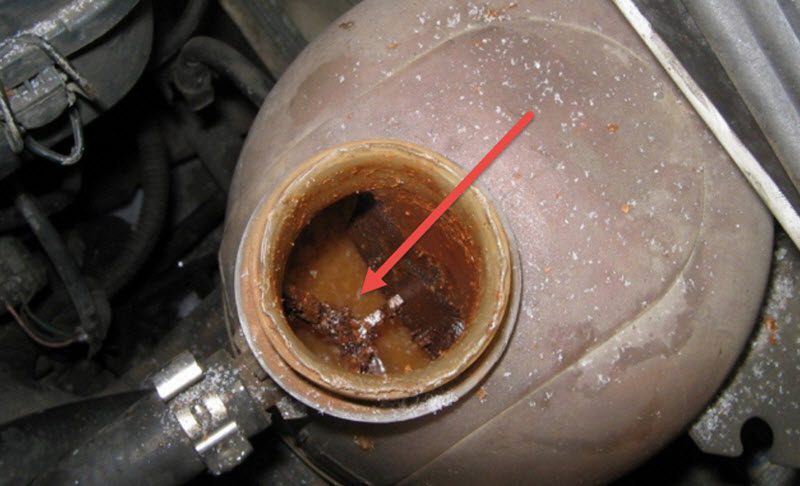
Pressurized oil begins to penetrate into the cooling system, where it forms a film on the inner walls that prevents heat transfer, partially decomposes, precipitates and cokes.
Rust
When antifreeze loses its protective ability for metals, corrosion begins on their surface. Oxides do not conduct heat well, the system loses efficiency.
In addition, corrosion has the feature of catalytic acceleration of further oxidation reactions. For cleaning, it has to be removed chemically, since there is no access to the internal surfaces of cooling jackets and radiators.
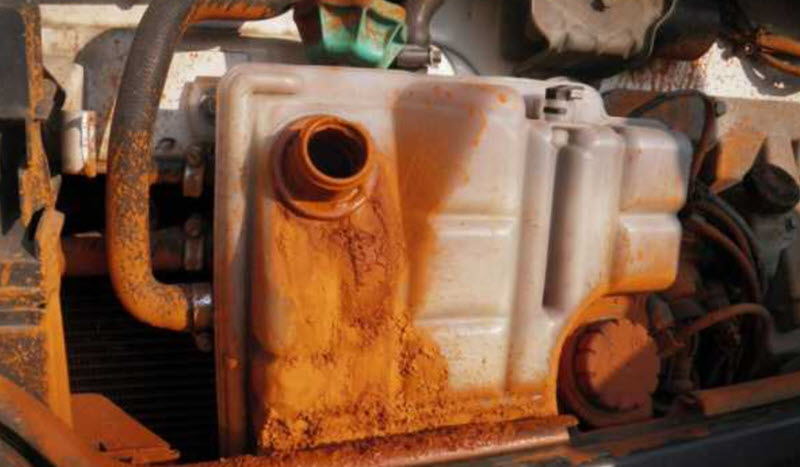
Emulsion
When oil products that enter the system come into contact with water, an emulsion of varying degrees of density is obtained, which drastically disrupts the operation of the system.
It is quite difficult to completely wash these substances, water will not help here. Sufficiently active substances that are part of the cleaning solutions will be required.
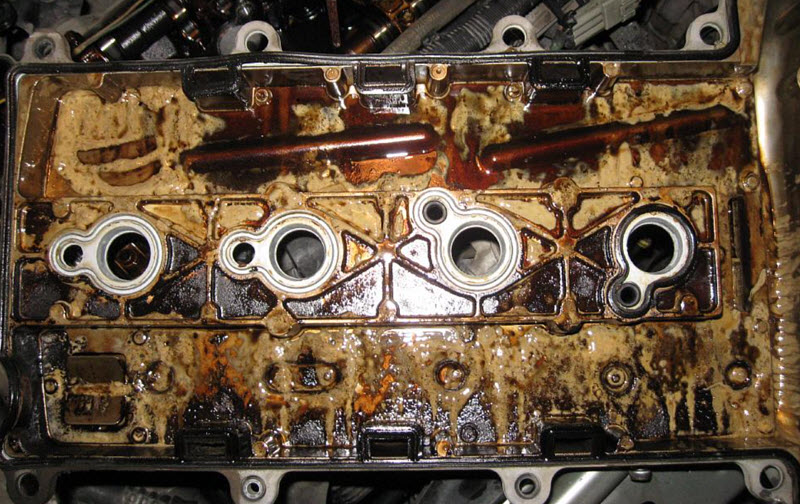
TOP 4 folk remedies for flushing
Folk chemicals are considered those that are not specifically designed for washing engines, but are effective to varying degrees. Such solutions can rarely remove all types of contaminants, but this is not always required. You can use their most pronounced properties to eliminate very specific problems if their sources are known.
Lemon acid
Like many acids, citric acid is able to react with rust without affecting the base metal. Even the aluminum of the radiator is quite resistant to it, which reacts quickly and violently with many acids, instantly disintegrating.
From cast iron and steel parts, citric acid removes rusty deposits well, in addition, it can also clean grease deposits. Cleaning dishes with this substance has long been popular in kitchen practice.
The approximate concentration of the working solution is from 200 to 800 grams (with a heavily polluted system) per bucket of water (10 liters). The solution is poured into a warm engine after draining the old fluid and initial flushing of the system with clean water.
After a few hours, the acid is drained and the engine is thoroughly rinsed with running water. The procedure can be repeated if there are doubts about complete cleaning.
Lactic acid
Lactic acid in whey is one of the most popular and effective flushing methods. It works very gently, does not destroy anything, so you can even ride it for a while, achieving a better result.
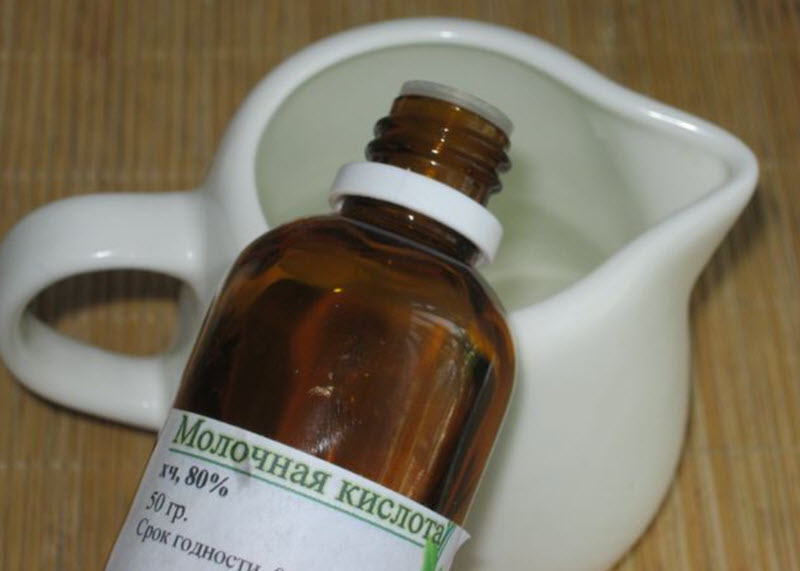

Serum must be well filtered before use, it may contain inclusions of fat or protein, which will worsen the situation instead of improving. After refueling it instead of antifreeze, a run of several tens of kilometers is allowed, followed by washing with clean water before pouring antifreeze.
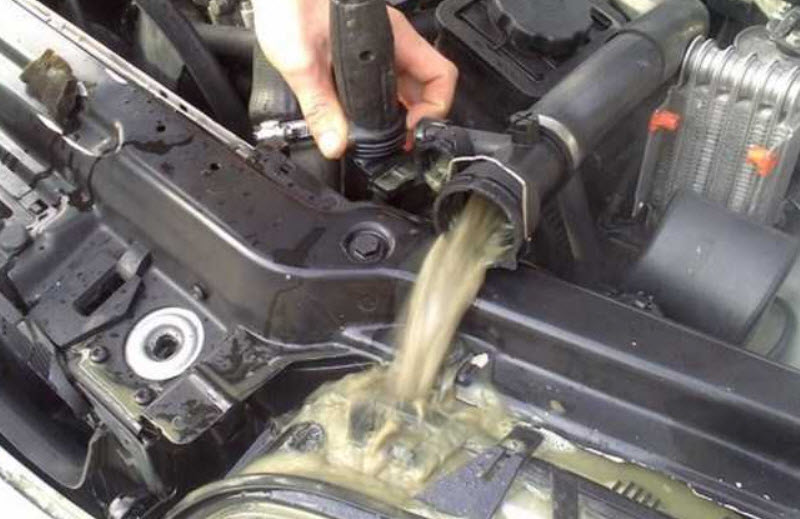

Caustic soda
A very caustic alkaline product that washes away organics and fatty deposits well. But it is difficult to imagine an engine that can be safely washed from the inside with caustic. In almost all, aluminum and its alloys are massively used, for which the caustic composition is categorically contraindicated.
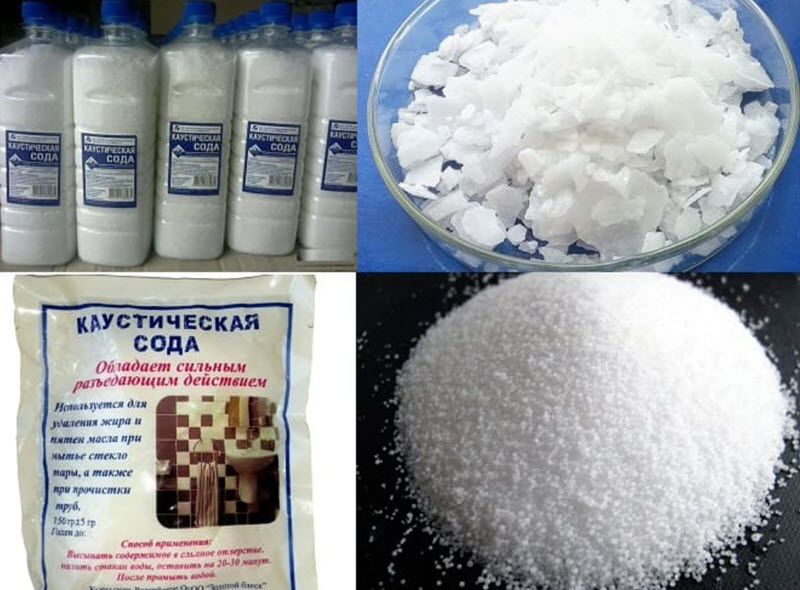

Is it possible to wash individual parts removed from the engine, and cast-iron cylinder blocks, which are still preserved on some engines. Block heads and radiators, as well as many pipes, are now everywhere made of light alloys.
Acetic acid
In its properties it is similar to lemon, relatively safe for aluminum, the proportions and methodology are about the same. It is also desirable to heat the engine to speed up the reaction, but it is impossible to operate the machine; at the maximum operating temperature and long duration of use, the acid begins to dissolve metals.
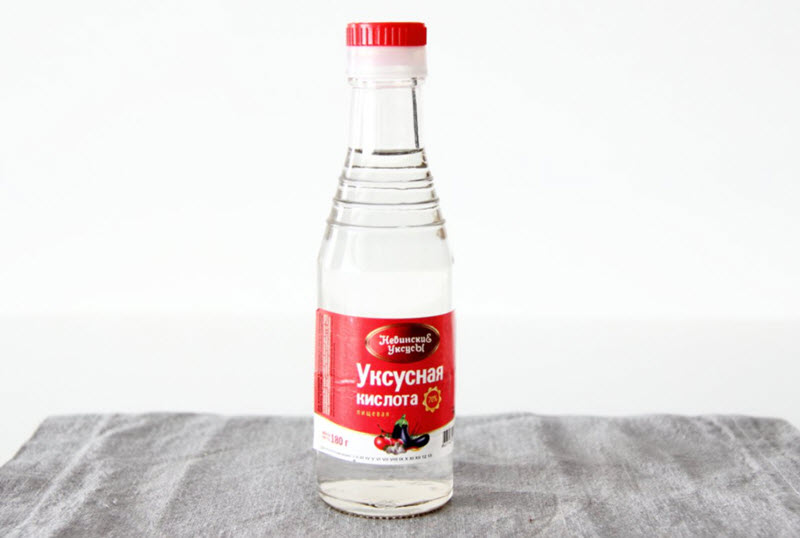

Washes that don't work or are very dangerous to engine parts
If the substance used for cleaning is simply useless, then nothing bad will happen, even deposits suspended in the liquid will be washed out. But the unpredictability of certain foreign substances in the system can cause harm, often irreparable.
plain water
Water is used for primary and final flushing due to its low cost and availability. It is desirable to use water with a minimum of mineral salts that form scale, as well as without acidic properties. Ideally, distilled, but it is not free. The replacement will be thawed or boiled.
Although in many water pipes there is water of quite sufficient quality. It is unsuitable for batteries, and will not bring harm to the cooling system.
Except for the last flush before pouring antifreeze. In this case, the water must be distilled or deionized, otherwise the antifreeze additives will lose part of their resource for cleaning up the remnants of this water. It will not be possible to completely remove it, for this it would be necessary to turn the car upside down.
Coca-Cola
The composition of this drink includes orthophosphoric acid, which works well in traces of corrosion. But besides her, in the secret cola recipe there are many more ingredients that are extremely undesirable for the motor. Therefore, this liquid, which is harmful even to humans, cannot be poured into a defenseless motor, all the more.
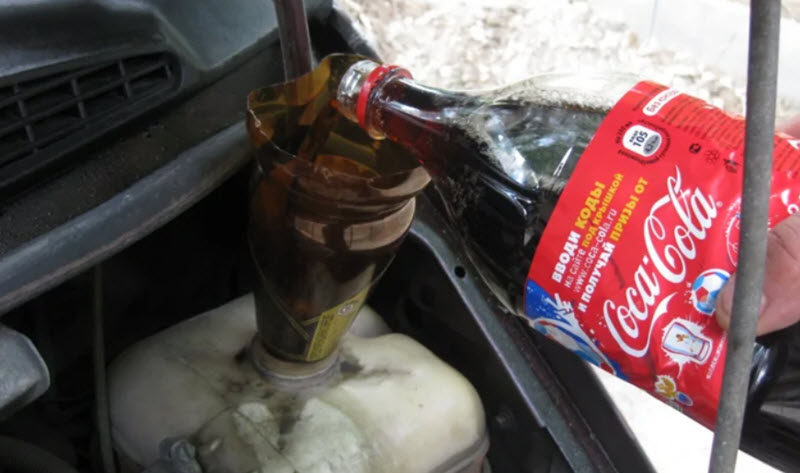

Yes, and phosphoric acid, too, except for the rust of ferrous metals, it can cause unwanted reactions on other components.
Household chemicals (Whiteness, Mole, Calgon)
All household formulations are effective in a very narrow range of contaminants, and the cooling system collects a wide variety of dirt, so the full cleaning effect will not work.
And each of them unpredictably affects aluminum, rubber and plastic. At best, they will not help, like dishwashing detergents, for example, and at worst, alkali will damage aluminum parts.
How to clean the cooling system with citric acid - step by step instructions
If it is decided to use a citric acid solution that is optimal in terms of speed, minimum harm and easy availability, then an approximate technique looks like this:
- drain the old antifreeze from the system by opening the stove tap, if any;
- rinse with running water or pour water several times, let the motor run and drain;
- prepare a working solution of 200 grams of powder per 10 liters of distilled water;
- pour the solution into the engine, start it and let it run until heated to 60-70 degrees;
- drain the acid, evaluate the amount of washed dirt, if there are a lot of them, then repeat the procedure with a new portion of the solution;
- rinse the engine again with water, drain, blow with compressed air and fill in a new antifreeze of the recommended brand.


Watch this video on YouTube
During operation, it is worth following the color and transparency of fresh antifreeze. If it quickly acquires a gray or brown color, then you will have to repeat the flush and change the coolant again.
A heavily neglected system can be laundered for a very long time, this is retribution for inattention to timely replacement.
